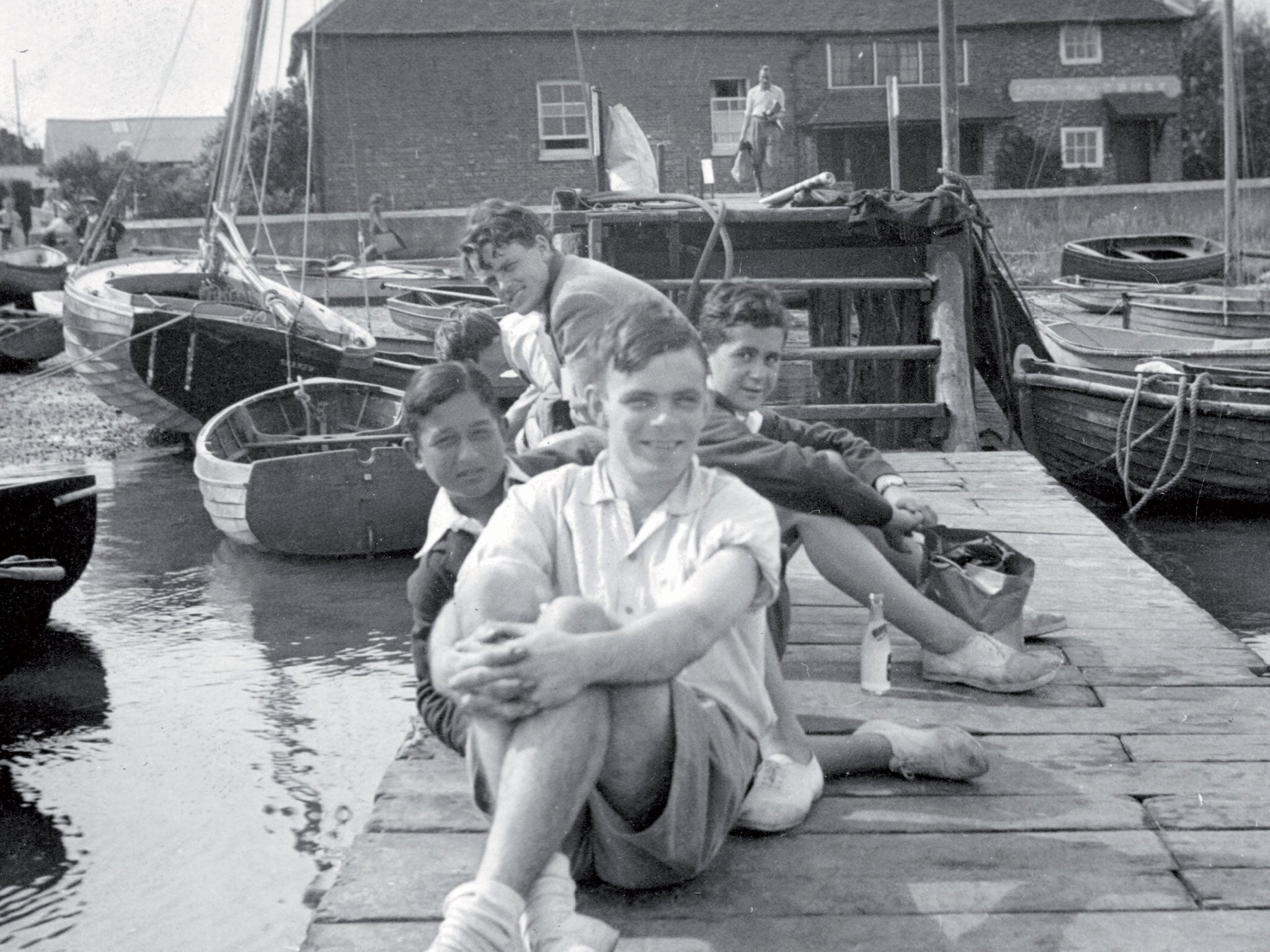The Big Questions: Do we need an inquiry into the death of Alan Turing? Should Britain boycott Sochi?
This week's big questions are answered by political campaigner Peter Tatchell


Your support helps us to tell the story
From reproductive rights to climate change to Big Tech, The Independent is on the ground when the story is developing. Whether it's investigating the financials of Elon Musk's pro-Trump PAC or producing our latest documentary, 'The A Word', which shines a light on the American women fighting for reproductive rights, we know how important it is to parse out the facts from the messaging.
At such a critical moment in US history, we need reporters on the ground. Your donation allows us to keep sending journalists to speak to both sides of the story.
The Independent is trusted by Americans across the entire political spectrum. And unlike many other quality news outlets, we choose not to lock Americans out of our reporting and analysis with paywalls. We believe quality journalism should be available to everyone, paid for by those who can afford it.
Your support makes all the difference.You are calling on David Cameron to hold an inquiry into the death of Alan Turing following his royal pardon. Why?
Turing is assumed to have committed suicide following his conviction and chemical castration. The original inquest into his death was, however, perfunctory. Although it is said that he died from eating an apple laced with cyanide, the allegedly fatal apple was never tested for cyanide. A new inquiry is long overdue, even if only to dispel any doubts about the true cause of his death – including speculation that he was murdered by the security services or others. While murder by state agents is unlikely, such a possibility has never been investigated. If the security services did not kill him, did they pressure him, and did this pressure contribute to his suicide?
What motive would the security services have for targeting Turing?
Turing was regarded as a high security risk because of his homosexuality and his expert knowledge of code-breaking, advanced mathematics and computer science. In 1954, Britain was gripped by a McCarthyite-style anti-homosexual witch hunt. Gay people were being hounded out of the armed forces and the civil and foreign services. In this frenzied homophobic atmosphere, gay men were regarded as security risks – open to blackmail at a time when homosexuality was illegal and punishable by life imprisonment. Doubts were routinely cast on their loyalty and patriotism, especially following the unmasking of the bisexual and gay spies, respectively Donald Maclean and Guy Burgess. Turing fell under suspicion. His security clearance was withdrawn and he was barred from further work at the spy agency GCHQ. I have asked David Cameron to disclose: was Turing subjected to MI5 or MI6 surveillance, pressure or threats? Were the security services in contact with Turing in the two years prior to his death? What was the frequency and nature of this contact? Can the security service files on Turing be made public?
The new Pope is receiving end-of-year plaudits for sending out more liberal signals from the Vatican, especially on the question of people’s sexual identity. How do you view this change of attitude?
The change of tone is very welcome, as is his humility and concern for the poor. He’s much better than Benedict. But there’s no sign of any policy shift by Francis on major issues such as contraception, abortion, fertility treatment, embryo research, women priests or homosexuality. In the Catechism, same sex love is still denounced as “intrinsically disordered” and a “grave depravity.” In September, Francis excommunicated an Australian priest who supported gay marriage and women’s ordination. In practical terms, there is little evidence of a new liberalism. It mostly looks good PR and spin.
Should Britain be boycotting the Winter Olympics in Sochi in protest at Russia’s anti-gay laws?
Russian LGBT activists oppose a boycott, fearing it might provoke an even worse homophobic backlash. Olympic boycotts never work and making athletes pay for government abuses is undesirable. But I agree that world leaders should boycott Sochi – not only because of the new anti-gay law but also because of the wider crackdown on civil society: the arrest of peaceful protesters and opposition leaders, harassment of journalists and lawyers and the suppression of workers’ rights. The release of Pussy Riot and the Greenpeace 30 changes nothing. The totalitarian system continues. I hope Clare Balding will speak out when she commentates for the BBC and that she – together with athletes and spectators – will wear ribbons, scarves and hats with rainbow colours.
The cause of equality for gay people before the law has suffered setbacks recently in India, Uganda and elsewhere. Do you fear that the battle you have fought for so long could be lost?
There have been recent setbacks for LGBT rights in Russia, India, Uganda, Nigeria, Australia and Croatia. However, these countries comprise a mere 3 per cent of the world’s nations. On the other hand, we’ve seen positive advances for LGBT people in Argentina, Uruguay, New Zealand and several US states. Sadly, backlash is a normal part of any struggle for social justice. It is often the last rage of those on the losing side of history. Despite the homophobic push-back, queer freedom is an unstoppable global force. Taking the long view, the trend of the past half-century is towards ever greater LGBT acceptance and equality. I’m vigilant but optimistic.
You’ve been a candidate for Parliament. But do you think you can campaign more effectively by not being an MP?
While I don’t have the staff and resources of an MP, I also don’t have the constraints of the party whip, parliamentary business and constituency work. I am free to follow my conscience and to do things that are not MP-like: calling on 10 Anglican bishops to tell the truth, attempting two citizen’s arrests of Robert Mugabe, ambushing Tony Blair’s limousine in protest at the Iraq war and interrupting the Archbishop of Canterbury’s 1998 Easter service. Much of my campaigning has involved using creative and cathartic protest as a way of raising public awareness, generating debate and changing hearts and minds.
Peter Tatchell is a political campaigner. For more information about his human rights work and to make a donation, go to www.PeterTatchellFoundation.org
Join our commenting forum
Join thought-provoking conversations, follow other Independent readers and see their replies
Comments